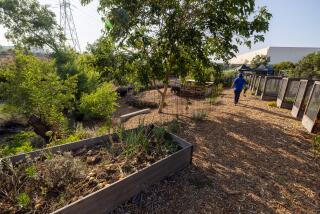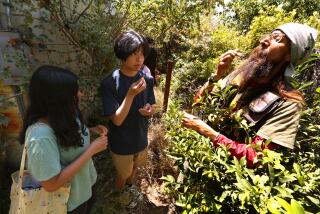When teaching climate change, tackle the myths along with the facts, researchers say

- Share via
New research shows that an effective way to make adults more interested in climate change is to teach their children about it in school. More classes have been tackling the subject with help from the National Center for Science Education.
The Oakland-based nonprofit organization has developed a series of five climate change lessons for science teachers. In addition to prioritizing interactive, evidence-based learning that engages students, the curriculum also tries to inoculate them against misinformation.
Studies by John Cook, a climate communication researcher at George Mason University, show that explaining the techniques used to cast doubt on the science of climate change makes people less susceptible to misleading information — regardless of their political views.
“Not wanting to be tricked is a fairly bipartisan feeling,” he said.
Dismantling these myths helps students develop critical thinking skills — and it empowers them to talk more about climate change.
“This benefit shouldn’t be underestimated,” Cook said. “Breaking climate silence is one of the most important things we can do to build social and political momentum toward meaningful climate action.”
School kids have the power to change conservative minds about climate change »
Anecdotally, teachers report that many students who go through the curriculum from the National Center for Science Education say they feel more comfortable discussing it with their parents, said Brad Hoge, NCSE’s director of teacher support.
So far, about 65 teachers have incorporated NCSE’s lessons into their courses, and as many as 500 could do so by next year, Hoge said.
When it comes to climate change, “it is crucial that communities become educated,” he said. “It’s interesting how that starts with students rather than the other way around.”







